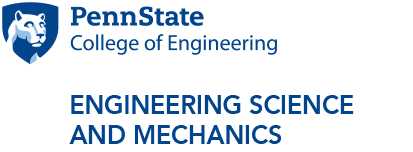Local Ordering in Multi-principal Element Alloys and its Impact on Diffusion and Dislocation Pattering
Abstract: Multi-principal element alloys (MPEAs), commonly termed medium- or high-entropy alloys containing three or more components in high concentrations, are presumed to be random solid solutions corresponding to maximum configurational entropy. The ideal random solid solutions in MPEAs, however, may only be possible at temperatures close to the melting point. As the temperature decreases in material processing or during service, solute-solute interaction and mixing enthalpy (enthalpic contribution) predominate the Gibbs free energy and induce local ordering of the chemistry. When this chemical short-range order (SRO) appears in the materials, fundamental questions arise as to (i) how does the SRO influence diffusion, and (ii) what are the deformation mechanisms and dislocation patterning under impact loading?
In this presentation, I will first review the background of MPEAs and chemical SRO. In the second part, I will discuss the specific role of SRO on diffusion and deformation mechanism. Through computational modeling and theoretical analysis, we found that SRO considerately reduces and localizes diffusion. Regarding fundamental deformation physics, leveraging on large-scale deformation simulations of a model fcc NiCoCr alloy at the atomistic level, we uncover strikingly different characteristics of dislocation patterning and deformation microstructure evolution under a high loading rate. At the end of the talk, I will present our deep learning framework using convolutional neural networks (CNNs) that can promisingly predict diffusion kinetics in vast compositional spaces of MPEAs and the associated timescale of chemical SRO formation.
Bio: Dr. Penghui Cao is an assistant professor in the Department of Mechanical and Aerospace Engineering (MAE), with a joint appointment in the Department of Materials Science and Engineering (MSE) at the University of California Irvine since January 2019. Prior to that, he worked as a Postdoctoral Associate at MIT from 2014 to 2018 after obtaining his PhD in mechanical engineering from Boston University. Dr. Cao leads the Lab for Extreme Mechanics and Materials (LEM&M) at UCI, focusing on the fundamental understanding of diffusion kinetics and deformation mechanisms under extreme thermomechanical environments, and is the recipient of DOE Early Career research award in 2021.
Media Contact: Ashley Cecil



